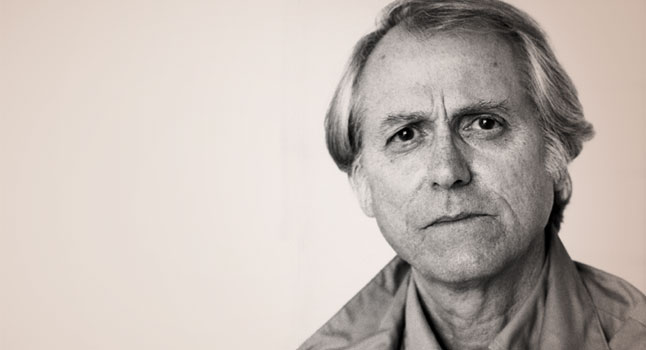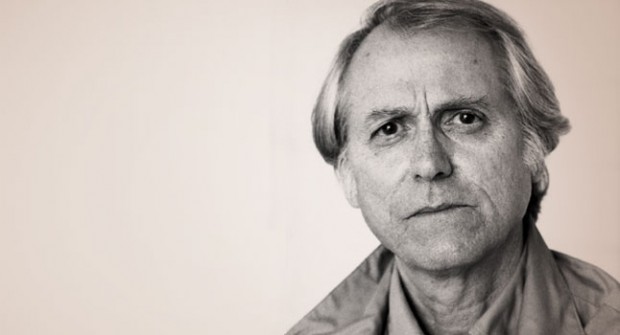One of the great things about Cosmopolis, perhaps David Cronenberg’s greatest film, is how perfectly it captures the seemingly adaptation-resistant language of Don DeLillo, a harmony of players and mediums so sublime that you wish his name was more common on movie posters. (Just watch it already.) Although he may not have a massive place in our cinematic world — there’s that 2012 film, the sadly underseen Game 6, and a pending adaptation or two — the man is, in some sense, a “cinematic” writer. Even if one were to exclude from discussion the fascinating Point Omega — which acts as something of a read-between-the-lines reconfiguring of Psycho — we cannot discount his admission that an early exposure to European art films was key to how he first approached the novel. In his own words, “Perhaps, in an indirect way, cinema allowed me to become a writer.”
DeLillo’s also a more engaging speaker than most other filmmakers, the near-prophetic observations of his work being a quality most cinematic artists would kill to possess. With as much in mind, plunk down for Don DeLillo: The Word, The Image, and The Gun, a 1991 BBC documentary produced in close collaboration with the author. More than a look at one’s process, it instead has him stand front and center, using that endlessly compelling voice — a slightly high, slightly lisp-y tone that betrays none of his authorial aura — to offer thoughts on the image-fueled madness of the 20th century while passages from his oeuvre (specifically Americana, Mao II, and Libra) are briefly enacted onscreen. (Careful viewers will notice that a young Julia Ormond is one the work’s players.)
Or consider it a cross between an author and filmmaker’s specific powers, for DeLillo had sought a project that would “use the documentary form to explore the relationships between gunmen and the novelist, words and images, the power of news and the obsession with apocalypse.” In the spirit of the aforementioned Mao II, he and director Kim Evans centered their effort on this question: “what effect can a novelist have on a culture in which terrorists seem to have hijacked the world’s narrative”? (To wit: disturbing connections between A Clockwork Orange, Taxi Driver, and attempted assassinations are woven into that thread.) The Word, The Image, and The Gun is among the most fascinating peeks into DeLillo’s mind that I, a budding fan, have yet seen — and while absolutely essential for enthusiasts, it might prove a fascinating work for even the most uninformed of neophytes.
Watch it below:
What did you make of this documentary? Does it at all inform your understanding of DeLillo’s work?


